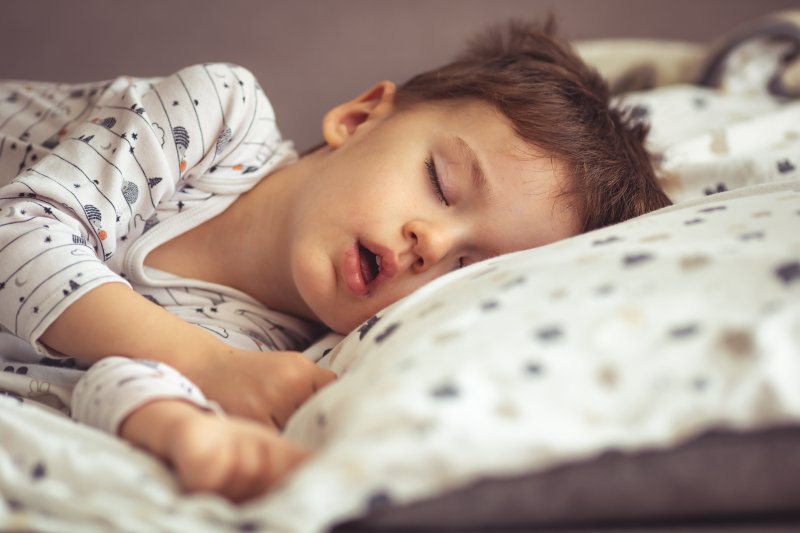
It’s not very common for children to have sleep apnea. In fact, only about 1 to 4 percent of children in the United States are thought to suffer from this disorder, many of them between the ages of 2 and 8. If your child is unlucky enough to have sleep apnea in Columbus, then it’s important for you, as the parent, to act before the lack of quality sleep starts to affect their growth, development, and behavior. In this post, you’ll learn more about what causes children’s sleep apnea, how to recognize it, and – most important of all – how it can be successfully treated.
Possible Causes of Sleep Apnea in Children
The risk factors for sleep apnea in children are a bit different from those of adults. You might have heard that obesity is one of the most common possible causes of sleep apnea, but while this can indeed be the case for children, the most likely explanation is enlarged tonsils and adenoids. When these tissues are too big, they can block your child’s airway when they sleep. Sometimes a craniofacial anomaly or a neuromuscular disorder can also contribute to nighttime breathing problems.
Symptoms of Sleep Apnea
If you keep your eye on your child at night, you might hear them snoring or observe pauses in their breathing; it’s also possible that they might start snorting, coughing, or choking. All of these symptoms are likely the result of an airway obstruction causing sleep apnea. You might also see them breathing through their mouth or sweating, and in the morning, you might find that they’ve wet the bed.
Sleep apnea tends to change your child’s behavior. At school, they might have trouble paying attention and start to perform poorly. They could also become hyperactive and exhibit behavioral problems.
Of course, many of the above symptoms have multiple possible explanations. As such, you should talk to a sleep expert as soon as possible in order to confirm or rule out the presence of a sleep disorder.
How Sleep Apnea is Treated
Once a sleep study has been performed and verified that your child has sleep apnea, treatment can begin. In some case, your little one may simply outgrow this disorder, but waiting for this to happen might not be worth the risk of long-term sleep apnea complications. Enlarged tonsils and adenoids can be removed to open up the airway, and you can help improve your child’s physical activity and diet to reduce obesity. A sleep apnea appliance can also go a long way towards reducing symptoms by shifting the jaw forward to keep the airway clear throughout the night.
Don’t let your child suffer from any more restless nights than they have to. If you have any reason at all to think they have sleep apnea, get in touch with a sleep expert immediately to figure out your next steps!
About the Author
Dr. Eric Buck is The Columbus Sleep Center’s sleep apnea expert. He is an active member of the American Academy of Dental Sleep Medicine to keep up with the newest developments in treating sleep disorders. Helping patients of all ages enjoy better lives is his passion! If you’re concerned that your child might have sleep apnea, you can schedule a consultation with Dr. Buck today by visiting his website or calling (614) 956-9305.
